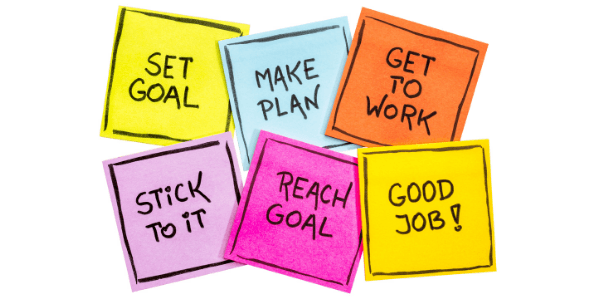Key Takeaways
- Recognizing low self-esteem is the first step to improvement. Common signs include negative self-talk, fear of failure, and social withdrawal.
- Building confidence daily can significantly impact your mental health, improving your relationships and overall happiness.
- High self-esteem leads to better stress management, healthier relationships, and increased motivation.
- Science-based strategies like reprogramming negative thoughts and setting achievable goals can effectively boost self-esteem.
- Engaging in self-care and practicing mindfulness are essential for maintaining and enhancing self-worth.
Immediate Steps to Boost Self-Esteem and Confidence
Boosting self-esteem and confidence doesn’t happen overnight, but there are immediate steps you can take to start this journey. Recognizing the signs of low self-esteem is crucial. These signs often manifest as self-doubt, harsh self-criticism, or avoiding challenges due to fear of failure.
Recognizing the Signs of Low Self-Esteem
Understanding the signs of low self-esteem can help you identify areas that need attention. Low self-esteem can be evident in various ways:
- Constantly comparing yourself to others and feeling inferior.
- Avoiding social situations due to fear of judgment.
- Experiencing difficulty accepting compliments.
- Engaging in negative self-talk and focusing on perceived flaws.

“23 Habits of Highly Confident Women …” from parade.com and used with no modifications.
Recognizing these signs is not about labeling yourself negatively but about understanding where you are starting from. Awareness is the first step toward change.
The Importance of Building Confidence in Daily Life
Building confidence isn’t just about feeling good; it’s about empowering yourself to take action in your life. Confidence allows you to face challenges head-on, make decisions with assurance, and pursue your goals with determination.
Imagine a student who fears public speaking. By building confidence, they can transform this fear into an opportunity to showcase their ideas, leading to better academic performance and personal growth.
Positive Impacts of High Self-Esteem on Mental Health
High self-esteem positively influences mental health in numerous ways. When you believe in your worth, you’re more likely to engage in self-care, seek out healthy relationships, and pursue your interests passionately. This creates a cycle of positive reinforcement where each success builds more confidence.
Research shows that individuals with high self-esteem experience lower levels of anxiety and depression. They are better equipped to handle stress and are more resilient in the face of adversity. For those looking to improve their mental resilience, exploring ways to reduce stress and anxiety can be beneficial.
Science-Based Strategies for Enhancing Self-Esteem
Enhancing self-esteem involves a combination of psychological strategies and practical actions. Science-based methods provide a structured approach to this transformation.
Reprogramming Negative Thought Patterns
One of the most effective strategies for boosting self-esteem is reprogramming negative thought patterns. Our thoughts significantly influence our emotions and behaviors. Therefore, altering these patterns can lead to profound changes in self-perception. For more insights on enhancing self-respect, consider these self-respect tips.
Start by identifying negative thoughts as they occur. Challenge these thoughts by questioning their validity and replacing them with positive affirmations. For example, if you catch yourself thinking, “I’m not good enough,” counter it with, “I am capable and deserving of success.” Discover more about coping strategies for rejection to further enhance your ability to counter negative thoughts.

“Goal Setting for Personal Growth: 5 …” from www.linkedin.com and used with no modifications.
Setting and Achieving Personal Goals
Setting personal goals is another powerful way to enhance self-esteem. Goals give you direction and a sense of purpose. When you achieve them, even small ones, it reinforces your belief in your abilities.
Begin with simple, achievable goals. This could be anything from reading a book a month to learning a new skill. As you accomplish these goals, your confidence grows, motivating you to tackle more significant challenges.
Engaging in Self-Care Practices
Self-care is crucial for maintaining and boosting self-esteem. It involves taking deliberate actions to nurture your physical, emotional, and mental well-being. This could include activities like exercising, meditating, or enjoying a hobby. For more tips, consider exploring ways to improve your self-esteem.
When you prioritize self-care, you send a message to yourself that you are worth the time and effort. This positive reinforcement strengthens your self-worth and enhances your confidence.
Seeking Supportive and Positive Influences
Surrounding yourself with supportive and positive influences can dramatically improve your self-esteem. People who encourage and inspire you can help you see your strengths and potential. It’s essential to build a network of friends, family, or mentors who believe in you and uplift you during challenging times.
Consider joining groups or communities that align with your interests and values. These environments often provide a sense of belonging and validation, further boosting your confidence.
Distance from Toxic Relationships
Just as positive influences can uplift you, toxic relationships can drain your self-esteem. Toxic relationships are characterized by negativity, manipulation, or constant criticism. They can make you doubt your worth and abilities.
It’s crucial to recognize these relationships and create boundaries to protect your mental well-being. In some cases, it may be necessary to distance yourself from these individuals entirely. Remember, your self-worth should never be compromised by someone else’s negativity.
Effective Communication for Better Self-Expression
Effective communication is vital for expressing your thoughts and needs clearly. When you communicate effectively, you assert your worth and demonstrate confidence in your ideas. This can significantly enhance your self-esteem.
Practice active listening and assertive communication. This means expressing your thoughts honestly and respectfully while also being open to others’ perspectives. Over time, you’ll find that your ability to communicate effectively strengthens your relationships and boosts your confidence.
Daily Practices to Maintain and Grow Self-Esteem
Building self-esteem is an ongoing process that requires consistent effort. Incorporating daily practices into your routine can help you maintain and grow your self-worth.
Daily Affirmations and Visualizations
Daily affirmations are positive statements that reinforce your self-worth. They help rewire your brain to focus on your strengths and potential. Start each day by repeating affirmations like, “I am capable,” or “I am worthy of success.”
Example: “Every morning, I stand in front of the mirror and say, ‘I am confident and capable of achieving my goals.’ This practice sets a positive tone for my day.”
Visualization is another powerful tool. Spend a few minutes each day imagining yourself achieving your goals. Visualizing success can boost your confidence and motivate you to take action.

“4Seeds Consulting | Why personal growth …” from www.4seeds.co.za and used with no modifications.
Journaling for Self-Reflection and Growth
Journaling is an excellent way to reflect on your thoughts and experiences. It allows you to explore your feelings and identify areas for growth. Set aside time each day to write about your achievements, challenges, and emotions.
Through journaling, you’ll gain insights into your patterns and behaviors, helping you make positive changes. It also serves as a reminder of your progress, reinforcing your belief in your abilities.
The Role of Gratitude in Enhancing Self-Esteem
Practicing gratitude can significantly enhance your self-esteem. When you focus on what you’re grateful for, you shift your attention from negative thoughts to positive aspects of your life. This change in perspective can improve your mood and boost your confidence.
Start a gratitude journal and write down three things you’re thankful for each day. This practice helps you appreciate your achievements and the positive influences in your life, reinforcing your self-worth.
When Professional Help May Be Needed
While self-help strategies are effective, there are times when professional assistance may be necessary. Recognizing when to seek help is a vital part of taking care of your mental health.
Recognizing Persistent Low Self-Worth
If you find that your low self-esteem persists despite your efforts, it may be time to seek professional help. Persistent feelings of inadequacy, chronic self-doubt, or significant distress can indicate underlying issues that require expert intervention.
Therapists and counselors can provide support and guidance tailored to your needs, helping you navigate the complexities of low self-esteem.
Therapeutic Options for Building Self-Esteem
There are several therapeutic options available for building self-esteem. Cognitive-behavioral therapy (CBT) is particularly effective. It focuses on changing negative thought patterns and behaviors that contribute to low self-esteem. Additionally, exploring ways to improve personal respect can be beneficial in enhancing self-esteem.
Additionally, support groups can provide a safe space to share experiences and learn from others facing similar challenges. These resources can empower you to make lasting changes and build a healthier sense of self-worth.
Support Groups and Community Resources
Support groups and community resources can be invaluable in your journey to boost self-esteem. These groups provide a platform to share experiences, gain insights, and receive encouragement from others who understand your struggles. Community resources, such as workshops and seminars, offer educational opportunities to learn new skills and strategies for enhancing self-worth.
Consider joining local or online support groups focused on personal development and self-esteem. These communities often foster a sense of belonging and validation, helping you feel less isolated in your journey.
Conclusion: Embracing Continuous Improvement
Boosting self-esteem and confidence is a continuous journey that requires dedication and patience. It’s about making small, consistent changes that lead to significant growth over time. Remember, every step you take toward improving your self-esteem is a step toward a more fulfilling and confident life.
Embrace the process of self-discovery and growth. Celebrate your achievements, no matter how small, and learn from your challenges. Each experience contributes to your personal development and strengthens your belief in your capabilities.
As you continue on this journey, remember that self-esteem is not a destination but a lifelong pursuit. By nurturing your self-worth and embracing continuous improvement, you create a foundation for a happier, more resilient life. Discover more about self-respect tips to enhance your journey.
Making Self-Esteem a Lifelong Journey
Self-esteem is not something you achieve once and for all; it’s a dynamic aspect of your life that evolves with your experiences. By committing to a lifelong journey of self-improvement, you ensure that your self-esteem remains strong and adaptable to life’s challenges. For more insights, explore these tips to help improve your self-esteem.
Regularly assess your progress and adjust your strategies as needed. Stay open to learning and growing, and don’t hesitate to seek support when necessary. Remember, the journey itself is as important as the destination.
Nurturing Self-Love and Respect in All Aspects of Life
Self-love and respect are fundamental to building and maintaining high self-esteem. They involve treating yourself with kindness, compassion, and understanding. By nurturing these qualities, you create a positive self-image that reinforces your confidence and self-worth.
Incorporate self-love into your daily routine by engaging in activities that bring you joy and fulfillment. Practice self-compassion by forgiving yourself for mistakes and focusing on your strengths. By doing so, you cultivate a sense of respect and appreciation for who you are.
Frequently Asked Questions
As you work on boosting your self-esteem and confidence, you may have some questions. Here are answers to some common inquiries to guide you on your journey.
- How can I quickly boost my self-esteem?
- What are some red flags of low self-esteem?
- How do self-esteem and confidence differ?
- What daily habits can help improve self-worth?
- When should I consider seeking professional help for low self-esteem?
How can I quickly boost my self-esteem?
To quickly boost your self-esteem, start with small, actionable steps. Practice positive self-talk by replacing negative thoughts with affirmations. Engage in activities that make you feel competent and successful, such as completing a task or learning something new. Surround yourself with supportive people who uplift and encourage you.
What are some red flags of low self-esteem?
Red flags of low self-esteem include frequent negative self-talk, avoiding challenges due to fear of failure, difficulty accepting compliments, and constantly comparing yourself to others. If you notice these signs, it’s essential to address them proactively to prevent further impact on your mental health.
Another red flag is feeling undeserving of success or happiness, which can lead to self-sabotage and missed opportunities. Recognizing these patterns is the first step toward making positive changes.
How do self-esteem and confidence differ?
Self-esteem refers to your overall sense of self-worth and how you perceive yourself. It’s about valuing yourself and believing in your inherent worth. Confidence, on the other hand, is the belief in your abilities to perform specific tasks or face challenges.
While related, self-esteem and confidence can vary independently. For example, you might have high confidence in your professional skills but low self-esteem regarding your personal life. Building both is crucial for overall well-being.
What daily habits can help improve self-worth?
Incorporating daily habits that promote self-worth can significantly enhance your self-esteem. Consider practicing gratitude by writing down three things you’re thankful for each day. Engage in regular physical activity to boost your mood and energy levels.
- Practice mindfulness to stay present and reduce negative self-talk.
- Set and achieve small goals to build confidence and a sense of accomplishment.
- Surround yourself with positive influences and limit exposure to negativity.
These habits, when practiced consistently, can lead to lasting improvements in self-worth and confidence.
When should I consider seeking professional help for low self-esteem?
If you find that your efforts to boost self-esteem aren’t yielding results or if your low self-esteem significantly impacts your daily life, it may be time to seek professional help. Persistent feelings of inadequacy, chronic self-doubt, or significant distress are indicators that expert intervention could be beneficial. Consider exploring science-based tips for restoring power to help address these challenges.
Therapists and counselors can provide tailored support and guidance, helping you navigate the complexities of low self-esteem and develop effective strategies for improvement. Remember, seeking help is a sign of strength and a proactive step toward a healthier, more confident you.









Leave a Reply